What is Duchenne?

What is Duchenne muscular dystrophy?
Duchenne muscular dystrophy (DMD) is a genetic disorder characterized by progressive muscle degeneration and weakness due to the alterations of a protein called dystrophin that helps keep muscle cells intact. DMD is one of four conditions known as dystrophinopathies. The other three diseases that belong to this group are Becker Muscular dystrophy (BMD, a mild form of DMD); an intermediate clinical presentation between DMD and BMD; and DMD-associated dilated cardiomyopathy (heart-disease) with little or no clinical skeletal, or voluntary, muscle disease.
DMD symptom onset is in early childhood, usually between ages 2 and 3. The disease primarily affects boys, but in rare cases it can affect girls.
In Europe and North America, the prevalence of DMD is approximately 6 per 100,000 individuals.
What are the symptoms of DMD?
Muscle weakness is the principal symptom of DMD. It can begin as early as age 2 or 3, first affecting the proximal muscles (those close to the core of the body) and later affecting the distal limb muscles (those close to the extremities). Usually, the lower external muscles are affected before the upper external muscles. The affected child might have difficulty jumping, running, and walking. Other symptoms include enlargement of the calves, a waddling gait, and lumbar lordosis (an inward curve of the spine). Later on, the heart and respiratory muscles are affected as well. Progressive weakness and scoliosis result in impaired pulmonary function, which can eventually cause acute respiratory failure. For more about DMD symptoms, see Signs and Symptoms. Becker muscular dystrophy (BMD) is a similar to DMD, but with onset usually in the teens or early adulthood. The disease course for BMD is slower and less predictable compared to DMD.What causes DMD?
DMD was first described by the French neurologist Guillaume Benjamin Amand Duchenne in the 1860s, but until the 1980s, little was known about the cause of any kind of muscular dystrophy. In 1986, MDA-supported researchers identified a particular gene on the X chromosome that, when flawed (mutated), leads to DMD. In 1987, the protein associated with this gene was identified and named dystrophin. Lack of the dystrophin protein in muscle cells causes them to be fragile and easily damaged. DMD has an X-linked recessive inheritance pattern and is passed on by the mother, who is referred to as a carrier. For more about the way gene mutations cause DMD, see Causes/Inheritance.What are DMD “carriers”?
DMD carriers are females who have a normal dystrophin gene on one X chromosome and an abnormal dystrophin gene on the other X chromosome. Most carriers of DMD do not themselves have signs and symptoms of the disease, but a minority do. Symptoms can range from mild skeletal muscle weakness or cardiac involvement to severe weakness or cardiac effects and can begin in childhood or adulthood. For more, read Females and DMD in Causes/Inheritance.What is the life expectancy in DMD?
Until relatively recently, boys with DMD usually did not survive much beyond their teen years. Thanks to advances in cardiac and respiratory care, life expectancy is increasing and many young adults with DMD attend college, have careers, get married, and have children. Survival into the early 30s is becoming more common than before. For more about living with DMD, see Medical Management.What is the status of DMD research?
MDA-supported researchers are actively pursuing several exciting strategies in DMD, such as gene therapy, exon skipping, stop codon read-through and gene repair. Human clinical trials are underway for some of these strategies. For an overview of DMD research strategies and the latest research news, see Research. On Sept. 19, 2016, the U.S. Food and Drug Administration (FDA) granted accelerated approval to eteplirsen (brand name Exondys 51) as the first disease-modifying drug for DMD. For more, see Top 5 FAQs: Eteplirsen (Exondys 51) for DMD Treatment. On Feb. 9, 2017, the FDA approved deflazacort (brand name Emflaza) to treat DMD. For more, see FDA Approves Emflaza for Treatment of Duchenne Muscular Dystrophy. In December 2019, Vyondys 53, an “exon skipping” drug that targets a section of DNA called exon 53 was approved by the FDA for treatment of individuals who have a confirmed mutation of the DMD gene that is amenable to a therapeutic strategy called exon 53 skipping and may help up to 8% of individuals with DMD. For more, see https://www.mda.org/press-releases/mda-celebrates-fda-approval-vyondys-53-treatment-dmd-amenable-exon-53-skipping. In August 2020, Viltepso, an “exon skipping” drug that targets a section of DNA called exon 53. was approved by the FDA for treatment of individuals who have a confirmed mutation of the DMD gene that is amenable to a therapeutic strategy called exon 53 skipping and may help up to 8% of individuals with DMD. For more, see https://strongly.mda.org/fda-approves-ns-pharmas-viltepso-for-treatment-of-dmd-amenable-to-exon-53-skippingContact
- San Antonio, Texas, USA
- Info@TheAkarifoundation.org
- (+1) 210-630-5451
Schedule
- Monday - Friday
- 09:00am a 6:00pm
- Holidays: Closed
We are proud to earn the Platinum Seal for sharing our full story. To achieve the highest level of transparency, we add extensive information to our nonprofit profile: information about our missions, programs, leadership, etc.; detailed financial information; qualitative information on objectives, strategies and vision; and our progress toward our mission. Your physical, mental, spiritual and social needs.
Donor Confidence
The Akari Foundation is an IRS accredited 501(c)(3) non-profit charitable organization. All donations are tax-deductible. EIN 82-2557369
The Akari Foundation maintains minimum operating expenses. The Board of Directors is a group of committed volunteers. No board member receives compensation. Your generous donation helps us with our Mission to Educate and empower the Hispanic community on rare diseases and help with resources, awareness, advocacy, and education, specializing in Duchenne muscular dystrophy.
The goal of the Board of Directors of The Akari Foundation is that donors have the highest level of confidence when making contributions to the Foundation. We intend to provide you with that confidence by sharing the following information. If you have any questions or concerns, please don’t hesitate to email Giving@theakarifoundation.org
Copyright © 2024 The Akari Foundation. All Rights Reserved | Politica de Privacidad



